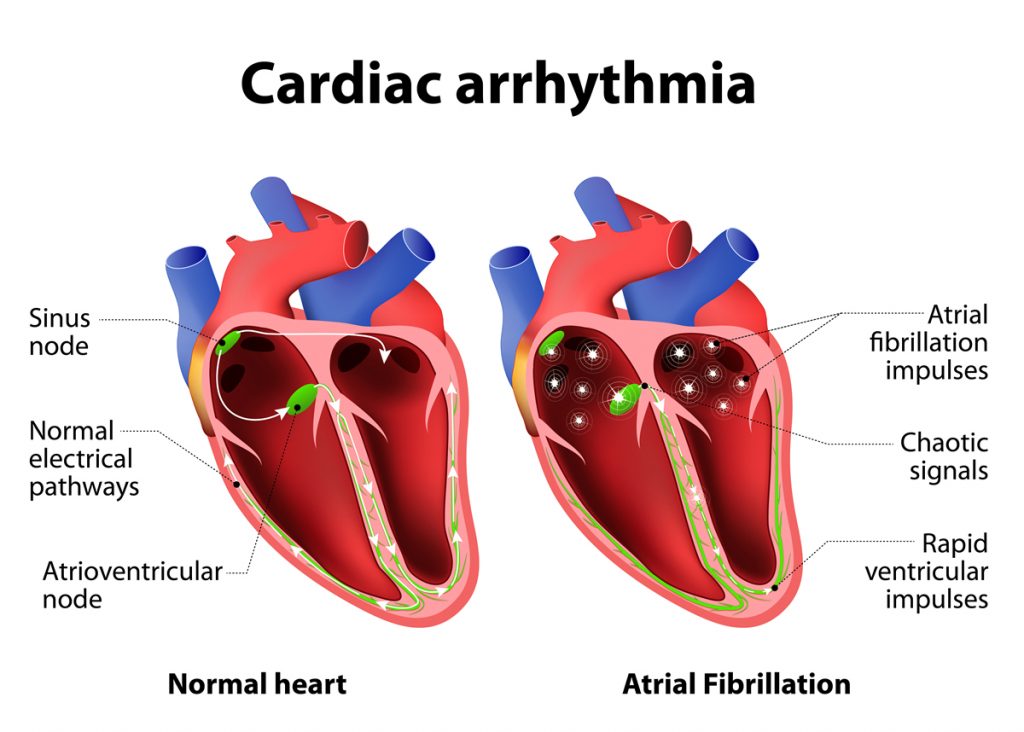Arrhythmia Diagnosis, Treatment and More

If you experience any of the signs of symptoms of Arrhythmia and suspect that you could be suffering from it, then you should consult a physician who would be able to diagnose cardiac patients. For the diagnosis of Arrhythmia, you should consult either a cardiologist or an electrophysiologist. A cardiologist is a heart specialist, while an electrophysiologist understands how electrical signals can affect the heart beat. Apart from these two types, you can consult a pediatric cardiologist if you are concerned about Arrhythmia in newborns.
When you will visit the cardiologist for the checkup and possible diagnosis of Arrhythmia, you will be physically examined. The physician will ask you about the symptoms you are experiencing and will enquire if you have experienced additional symptoms. You will be examined physically and your heartbeat will be monitored by the physician with the help of a stethoscope. Sometimes Arrhythmia is caused by damage to the heart, so you will be examined for the signs of the condition, such as swellings on legs and feet.
The physician will require a few tests to be able to diagnose your condition. One of the most elementary cardiac tests is the electrocardiogram which is also commonly known as the ECG or the EKG test. This test features a graphical translation of the electrical activity of the heart which instantly allows trained physicians to immediately have an idea about any heart disorders or heart failure. Chest X-rays are also examined. But diagnosis for Arrhythmia could involve further investigation.
The physician will most likely ask you to go through a Holter or Event Meter test. The Holter is an electronic device which records the electrical activity of your heart and the heartbeat rate and is worn on the body for a period of at least 24 hours to 48 hours. This device monitors the heartbeat rate throughout the day, even when you are performing your everyday tasks or sleeping. On the other hand, an Event Meter monitors your heart’s activity at a specific event when your heart is made to work under stress, such as a treadmill workout.
But since there could be other causes behind Arrhythmia apart from heart disease, so a thorough analysis is important before a physician is able to diagnose the condition. This is why blood tests are suggested to check for thyroid disorders. These tests are preliminary in nature and could be prescribed to the patients with even mild cases of Arrhythmia as well. Other tests include echocardiography, stress tests,
However, there are even tests of more serious nature which could be required of patients who are suffering from severe Arrhythmia symptoms. Tests like coronary angiography are carried out for patients with a severe risk of Arrhythmia. If a patient suffers fainting and heartbeat rate fluctuations, tests like Tilt Table and Implantable Loop Recorder are carried out, with the former involving an examination of the reasons behind the fainting of a patient, while the latter involves the surgical planting of a loop recorder to record the heart activity for very long periods such as 12 to 24 months.
On the basis of these observations, a cardiologist or an electrophysiologist can arrive to a conclusion whether a person is suffering from Arrhythmia or not and will prescribe any treatment and safety measures if necessary.
Trending Health Topics
- ADHD
- Allergies
- Arthritis
- Bipolar Disorder
- Bunions
- Car Accidents
- Chron's Disease
- Common Cold
- COPD
- Depression
- Dry Skin
- Dry throat
- Eczema
- Fungal Infection
- GERD
- HIV/AIDS
- Hypertension
- Irritable Bowel Syndrome (IBS)
- Multiple Sclerosis
- Osteoarthritis
- Psoriasis
- Rheumatoid Arthritis
- Skin Disorders
- strep throat
- Type 2 Diabetes
- Uncategorized